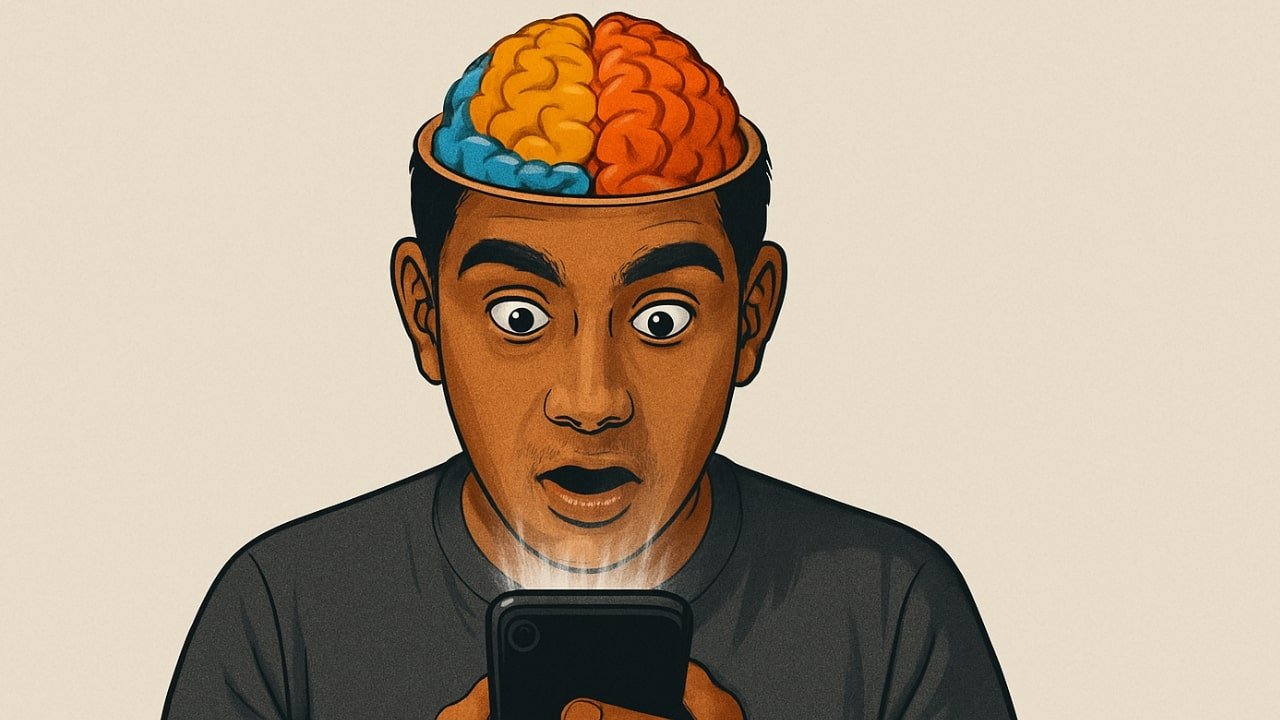
Table of Contents
Introduction
Do you know what is ruling the internet in this digital era?
Here’s a hint: the reels and shorts you can’t stop watching are short form content dominating the internet and fueling social media addiction.
While these visually stimulating videos keep you engaged by providing instant gratification, there is a flip side to all this entertainment. Research states that excessive consumption of short-form content affects attention span and productivity. For students, the endless scrolling leads to concentration issues, feeling overstimulated, and poor academic performance.
Through this article, we will understand the impact of short-form content on attention span and some strategies to combat it.
Why Short-Form Content Is Addictive and Hurts Focus
Why do we prefer short videos over longer ones? That’s because short-form content is fast-paced and engaging.
Such content is meant to hook the viewers in a few seconds. Remember, the algorithm is always observing you. Hence, the more you watch, the more it will suggest similar videos. You may not even realise, but these videos are rewiring your brain. Resultantly, you crave constant stimulation, and the demanding cognitive tasks like reading or studying seem tiresome.
As per an interview with Dr. Gloria Mark, a professor at UC Irvine, our attention span has significantly declined. In 2004, it was close to 2 and a half minutes while using an electronic device, and in 2012, the average span of attention came down to 75 seconds. That’s almost a 50% decline!
Short-Form Content: Its Impact on the Span of Attention
No one is immune to its charm, be it schoolchildren, working professionals, or senior citizens. Let us see how exactly addictive short-form content affects attention span and academic performance.
Instant Gratification and Dopamine Addiction
Dopamine hit, anyone? Short videos provide immediate entertainment and release dopamine. With every swipe, new engaging content appears on your screen and triggers a cycle of instant gratification. This makes it harder for you to engage in activities that give delayed results, like completing assignments or studying.
Increased Academic Procrastination

Research has linked excessive short-form content consumption to academic procrastination. A study published in the National Institutes of Health states that children who spend more than two hours daily on screens exhibit lower test scores. Students who frequently consume short-form content can suffer from a decreasing attention span. As the ability to focus reduces, students struggle to retain complex concepts, which could lead to poor academic performance.
Struggles with Long-Form Learning Materials and Complex Tasks
One research participant said, “After watching a ton of Instagram Reels, I get impatient when trying to complete long tasks like studying.”
When students get used to short-form content, long-form materials look challenging, and they find it difficult to engage with traditional learning methods that require sustained focus. Tasks like reading books, completing assignments, or sitting through long lectures become difficult and can harm the chances of academic success.
What Are the Psychological Effects of Short-Form Content?
Now, let us discuss the long-lasting impact of short-form content. At the base of poor academic performance or inability to focus at work, there are serious psychological effects. Here are a few:
Reduced Patience and Attention Span
When you get used to these fast-paced and short videos, the brain becomes trained to process information in short bursts. While students have their struggles, the working professionals who also consume excessive short-form content can find it difficult to focus during meetings or complete deep work efficiently.
Social Media Addiction
Social media platforms are designed to keep you hooked. Those algorithms are always watching you and will churn out personalized recommendations. Do you like watching recipes? Stay assured, your feed will be flooded with these cooking videos. What happens next? Your screen time will go up, and this will lead to dependency on short-form content. This is social media withdrawal! As per a study, people who are addicted to reels and short-form content exhibit signs of withdrawal when they try reducing consumption.
Increased Anxiety and Poor Sleep Quality
Does your nighttime routine include binge-watching short-form content before bed? Do you lie awake, scrolling and fighting the urge to sleep? This dangerous habit of consistently consuming short-form content before bedtime is overstimulating your brain. The resulting poor sleep quality leads to lower cognitive function, which makes it difficult to focus on demanding academic or work-related tasks.
The Role of Attention Deficit in Learning Difficulties
Now, here’s the scary part. Research also suggests that prolonged exposure to short-form content can lead to diminished working memory. For students, this means difficulty in retaining and processing information effectively. It could also be understood as attention deficit symptoms that can make learning new concepts challenging.
How to Reduce Social Media Addiction?
Yes, there are solutions. After understanding the alarming effects of short-form content, we will look at the actionables. Here are some strategies that will help regain focus and improve your attention span:
Practice Mindful Consumption

- Set time limits and be intentional about the type of content you consume.
- Track screen usage and set restrictions by using apps like Screen Time (iOS) or Digital Wellbeing (Android).
Implement Time Blocking
- Block specific time for focused study sessions without any kind of digital distractions.
- Try the Pomodoro Technique for sustained attention. Start with 25-minute focus sessions followed by 5-minute breaks.
Engage in Deep Reading
- Turn your attention from the screen to reading material. To get started, read shorter articles and gradually move to longer materials or books.
- To make reading effective, practice active reading, such as summarizing key points or taking notes. Don’t just skim through!
Reduce Multitasking
- Focus on one task at a time. You can avoid switching between different tasks or constantly checking your phone. Try switching off those distracting notifications.
- Sit with yourself and train your brain to complete one task at a time before moving to the next.

Incorporate Meditation and Physical Activities
- To improve focus and strengthen attention control, try meditating and breathing exercises.
- Physical activities like short walks between study sessions or at work can help enhance concentration.

Implement Tech-Free Study Zones
- To regain focus, designate areas where electronic devices are not allowed. Students can consider studying in libraries.
- Use physical books or printed notes to reduce screen distractions. Remember, the old way of doing things?
Conclusion
Short-form content has changed and reshaped the way we consume and engage with information. At the same time, it reduces attention span, ability to focus on tasks, and impacts academic performance. The cons outweigh the entertainment value and quick insights.
Thankfully, these effects can be countered through techniques like mindful consumption, meditation, and structured study, to name a few. The need of the hour is to recognise how short-form content is rewiring brains. In a world full of digital distractions, we must live mindfully. So, reduce your short-form content consumption today—track your screen time and set limits to reclaim focus!
Recommended Articles
If you found this topic interesting, you might also enjoy reading these articles:


